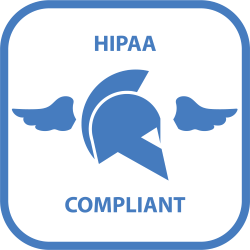HIPAA Case Study
For decades, passwords have been the single most common way to identify a user in healthcare. But in today’s online climate where cyber security defenses continue to fail organizations in security and convenience. Passwords have also been the single biggest point of failure resulting in unproductive workflows and data breaches.
Phishing, social engineering and malware continue to defeat cyber security defenses due to human error. Human error and poor password practices give attackers an easy way to compromise organization security systems. Therefore, this can render clinics incapable of detecting and containing long-term breaches.
In this case study, we outline the ways one healthcare organization solves the problem of getting into EHRs faster while staying HIPAA compliant. Read more case studies and white papers on compliance or check out some GateKeeper reviews by happy healthcare clients.

